The 32nd
LaureatePainting
Sebastião Salgado
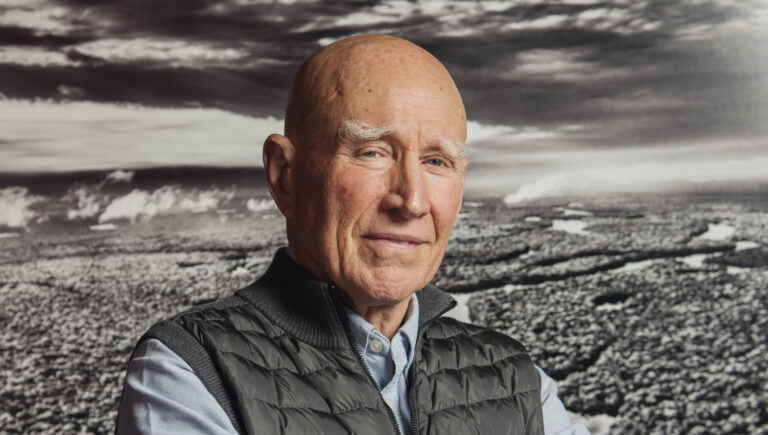
Internationally acclaimed photographer, Sebastião Salgado’s powerful black and white works are instantly recognizable, works that put a spotlight on the dispossessed and exploited, the beauty of nature and the fragility of the world and its inhabitants. As political refugees, he and his wife Lélia moved to France from Brazil in 1969. Initially trained as an economist, he took up photography full time in 1973. He works thematically, using only natural light, his photos posing serious questions about the imbalance of wealth and the impact of wars and disasters. Sahel captured the famine in Africa, Workers, the realities of manual labor, Migrations, the realities of migrants and refugees while Genesis is an homage to the Earth’s natural beauty. Since the 1990s, Salgado has been actively involved with environmental and reforestation issues through the Instituto Terra, an organization that he established with his wife in his home in Brazil. His latest work, Amazônia, is a seven-year exploration of the Amazon ecosystem and the way of life of its indigenous people. The book, Amazônia, was published in May 2021 and an accompanying exhibition is currently touring the world.
Biography
Internationally acclaimed photographer, Sebastião Salgado’s powerful black and white works are instantly recognizable; works that put a spotlight on the dispossessed and exploited, the beauty of nature and the fragility of the world and its inhabitants.
Salgado grew up in a small village in central Brazil and studied economics at the University of São Paulo. In 1969, he and his wife Lélia moved to France to escape the oppressive political situation in Brazil. After completing a doctorate at the University of Paris, he started work as an economist for the International Coffee Organization. Taking his wife’s camera with him on assignments to Africa, he soon found that, “photography totally invaded my life”. In 1973, he took up photography full time, working initially for agencies such as Magnum Photos, before setting up his own agency in Paris in 1994.
Salgado’s work is characterized by an intensity born of his patient and empathetic integration into his subject’s lives. He lives alongside them, believing, “it should be the person in front of you who gives you the photo as a gift”. The gift his subjects give is always intensely personal, sometimes distressing, but always revealing their humanity. His use of natural light further adds to the impact of his photographs – frequently giving a photograph an intangible depth and mood.
Salgado works thematically; Sahel: l’homme en détresse (1986) and Sahel: el fin del camino (1988) captured the famine in Africa, Workers (1993) manual laborers around the world, while Migrations (2000) followed the reality of migrants and refugees. As he says, "Photography is my language" and through his work, he has made the world aware of the imbalance of wealth and the impact of wars and disasters.
However, working in these situations can take its toll and the horrific violence he witnessed during the Rwandan genocide and the conflict in Yugoslavia so sickened Salgado that he temporarily gave up photography. With Lélia, he returned to his family home in Brazil, which had fallen into disrepair due to deforestation. Together they set up Instituto Terra, an organization committed to the promotion of environmental recovery and sustainable development and over the past 20 years, more than 2.5 million saplings of native species have been planted and water sources and ecosystems have gradually been restored. Salgado’s passion for photography was also restored and he set about documenting the world's untouched nature, animals and peoples for Genesis (2013); considered by many to be his masterpiece.
He continues to ask people to look and think. His latest work, Amazônia, a seven-year exploration of the Amazon ecosystem and the lives of its indigenous people, is an alarming reminder of the dangers posed by illegal logging, gold mining, dam construction and climate change. The book, Amazônia was published in May 2021 with an accompanying exhibition that is currently touring the world.
Chronology
Best Photography Book of the Year for Sahel: l'homme en détresse, Arles International Festival, France
Grand Prix at the National Photo Award of the French Ministry of Culture
Prince of Asturias Awards for the Arts
Chevalier de la Légion d'honneur
Peace Prize of German Book Trade
Honorary Doctor of Arts of the Harvard University, USA
-
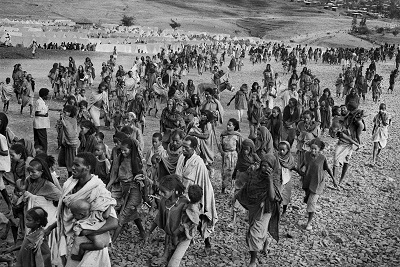
Sahel Ethiopia
-
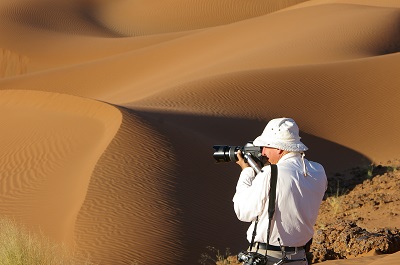
Sebastião Salgado at work in Namibia
-
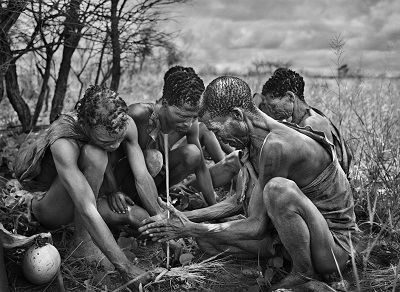
Genesis
San people (Bushmen), Botswana -
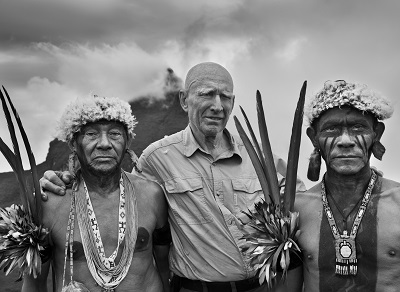
Sebastião Salgado at work for Amazônia
-
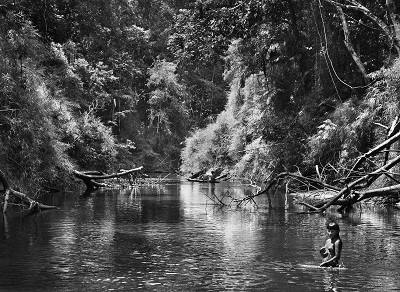
Amazônia
Young Suruwahá, Suruwahá Indigenous Territory, State of Amazonas, Brazil -
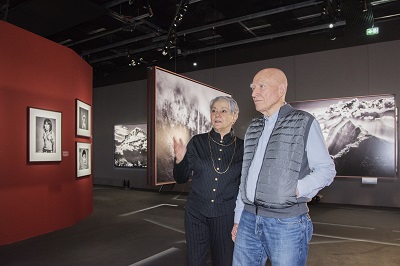
With his wife Lélia Wanick Salgado at his exhibition SALGADO AMAZÔNIA
